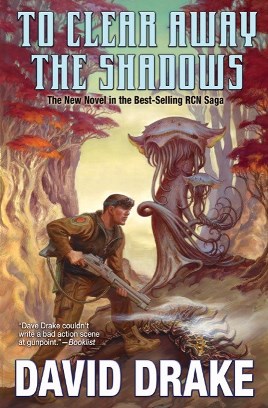Baen, June 2019 in the RCN Series
ADVENTURES BEYOND THE EDGE OF THE KNOWN UNIVERSE
There were earlier examples, but the 19th century was the great age of scientific exploration. Wealthy amateurs sometimes funded their own expeditions, most were carried out with government support.
This activity greatly increased knowledge of the natural world. For example, what is still believed to be the deepest point in the oceans, Challenger Deep, was plumbed by the 1872 Challenger Expedition–a joint effort by the Royal Society of London and the Royal Navy.
More important for my purposes, these expeditions were often described by highly literate individuals who left personal accounts of amazing adventures. (The Voyage of the Beagle is one example.) I’ve read a lot of these both before and after I decided to use them as a model for this book.
The complexity of the political situation is extreme, and the risks and discomfort these scientists were undergoing in their researches are truly remarkable. It’s with reason that this period is sometimes called The Heroic Age of Science.
A note on the dedication. When I began writing in the 1960s, Mark Geston was one of the writers who were making waves in the SF field. By the time I left law in the ’80s, Mark had become a full-time attorney. We’ve kept up a low-key correspondence over the years.
Recently Mark sent me an anthology of British Great War poetry. Many of the selections were familiar, but some were not; among the latter, Robert Graves’ To Lucasta on Going to the War for the Fourth Time. Graves was a scholar and a poet of note, but when Germany invaded Belgium in 1914 to start the war, he joined the British army as an officer of the 7th Welch Fusiliers.
The fusiliers were originally raised to guard the artillery. They were equipped with fusils–flintlocks–instead of matchlocks and pikes. They had their own traditions and even a marching pace different from that of other British infantry. They were a picked force.
Exactly what that means is here in Graves’ poem:
Lucasta, when to France your man
Returns his fourth time, hating war,
Yet laughs as calmly as he can
And flings an oath, but says no more.
That is not courage, that’s not fear–
Lucasta he’s a Fusilier.
And his pride sends him here.
I understand perfectly; because I rode with the Blackhorse in Viet Nam and Cambodia.
–Dave Drake
